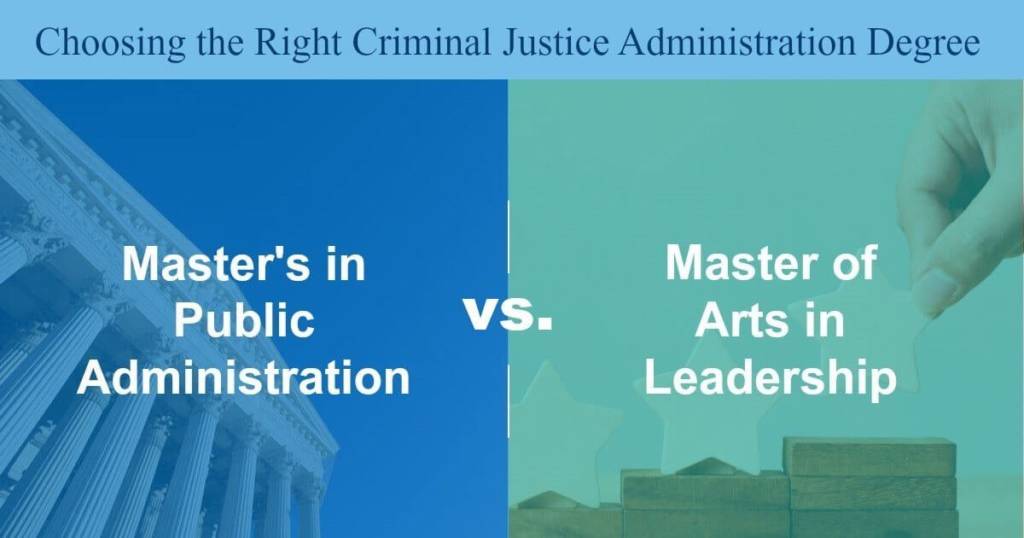The law enforcement and public safety field is vast, with a number of career paths available to those looking to serve and protect. For certain careers in law enforcement an associates degree will suffice, while others, especially those in the federal government, require or highly recommend a master’s degree. While the latter requires more time and effort, the rewards can be great, not only in terms of salary but also when it comes to job satisfaction. Here are five careers in law enforcement that typically require a master’s degree.
[RELATED] Moving Up the Ranks: How a Master’s Degree Can Impact Your Career Track [Free eBook] >>
1. Customs and Border Protection Officer
To work in the U.S. Department of Homeland Security as a Customs and Border Protection officer, at a GS-7 level, you typically need a bachelor’s degree plus at least one year of graduate schooling in a law enforcement discipline. Obtaining a master’s degree is even better as it can give you a leg up on the competition by enhancing your knowledge and resume that much more – landing you one of the coveted careers in law enforcement.
The US Customs and Border Protection (CBP) agency is the largest law enforcement agency within the Department of Homeland Security. Employees of the CBP are “charged with keeping terrorists and their weapons out of the U.S. while facilitating lawful international travel and trade.” Working for the CBP gives you the opportunity to curb illegal entry of individuals, drugs, contraband, pests, disease and foreign species into the US as well as to regulate and enforce international trade and protect US businesses intellectual property.
Depending on your title, education level and specific duties, a career with the CBP offers an average salary of $78,450 for Border Patrol Agents and $79,932 for Customers Officers, according to PayScale. Those working in management and program analyst roles earn an average of $102,518.
[youtube]GuZi8B6Y8Ic[/youtube]
2. Chief of Police
For many in the law enforcement field, landing the chief of police position is the ultimate goal. If that’s true for you, getting a master’s degree is a must. According to Policeone.com, “It’s rare that a candidate for a Chief’s position is selected that doesn’t have a master’s degree.” As the head of the department, the chief of police carries many responsibilities including managing operations, finances and personnel. In order to do all of these things successfully, a chief of police needs strong leadership and business skills. That’s why a master’s degree is almost always required – because it is in graduate school that officers gain the organizational and managerial skills required to lead. Police Chiefs typically earn salaries in the range of $97,420 to $109,439, with a median salary of $103,175, according to Salary.com. However, keep in mind that this can vary widely depending on factors such as market and agency size and geographic location.
[RELATED] How a Master’s Degree Program Helped Police Chief Land His Job >>
3. FBI or CIA Agent
In order to work for the FBI or CIA, applicants need a bachelor’s degree at minimum, but a master’s or PhD is typically preferred. After all, applicants to these agencies are competing to work at the most well known law enforcement bureaus in the country.
FBI agents investigate and combat a wide range of crimes including cybercrime, financial crimes, terror threats, gambling, public corruption and fraud to name a few. As highly trained special agents tasked with protecting US federal law, FBI agents work all over the country. While the FBI’s primary focus is on domestic crime, they also work internationally. Salaries are based on experience and seniority, with an average of $93,839 per year, according to Indeed.com.
CIA agents on the other hand focus on international crime to protect national security through the gathering of intelligence. According to the CIA, their primary mission is “to collect, analyze, evaluate, and disseminate foreign intelligence to assist the President and senior US government policymakers in making decisions relating to national security.” Jobs for Special Agent/Investigator listed on the CIA website show a salary range of $74,872-$136,771.
4. Criminal Profiler
Criminal profilers spend a majority of their time analyzing evidence in order to theorize how and why a crime occurred and perhaps most importantly, the type of person who would have committed such a crime. Criminal profiling requires highly skilled and experienced professionals that have a keen understanding of psychology, how the brain works, criminal behavior, and law enforcement in order to be successful in this challenging, yet exciting field. According to the FBI, in their 2014 survey of top criminal profilers, 87.5 percent of the participants had advanced degrees — meaning that a master’s or PhD is highly recommended if you want to stand a chance of landing a job as a criminal profiler. Most criminal profilers work as supervisory special agents, a classification that can earn up to $140,000 annually according to TheBalance.
[RELATED] Comparing Programs: What Criminal Justice Master’s Degree is Right For You?
5. Criminologist
Criminologists main duty is to study crime. Through extensive research and investigation, criminologists develop theories as to why people commit certain crimes in the hopes of mitigating future crimes of a similar nature. Analysis and report writing are huge components of this role. Criminologists can work for a number of different organizations from law enforcement agencies to universities to correctional facilities. This highly analytical career requires a bachelor’s degree at a minimum, with many employers preferring a master’s degree. Depending on education level and years of experience, criminologists make an average of $42,289 annually, according to Payscale.com. As with most careers in law enforcement, the higher the degree, the greater the pay.
University of San Diego offers a Master of Science in Law Enforcement and Public Safety Leadership degree program that is delivered completely online and can help prepare for career advancement in law enforcement. This multi-faceted and practical law enforcement degree covers leadership, management, organizational theory, critical issues, community assessment, budget and finance, public safety law, and conflict resolution in addition to criminal justice topics. Transfer credit is available for graduate coursework taken through the FBI National Academy and California Command College training.





